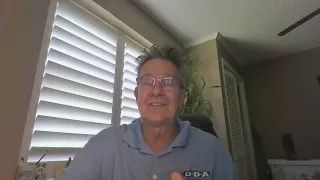USA Today: If Social Security falters, reverse mortgages could be worth a look
Many retirees have said they rely largely — and sometimes entirely — on Social Security benefits as their primary income stream in retirement. But in instances where these payments may not be enough to make ends meet, other options should be considered — and in the right situation, a reverse mortgage could be one such option.
That’s according to a column published this week by USA Today, which assessed reverse mortgages in tandem with options such as personal savings, a part-time job and other benefits programs.
“A reverse mortgage is a possibility for seniors with substantial equity in their homes,” the column stated. “It essentially enables you to borrow against your equity, and you aren’t required to make any payments while you’re still alive as long as you live in the house.”
The column is likely referencing the Home Equity Conversion Mortgage (HECM) program insured by the Federal Housing Administration (FHA). Loan proceeds are dependent on the amount of equity in the home and current interest rates, the column noted, and there are multiple disbursement options available, the column noted. The minimum age requirement of 62, a core tenet of the HECM program, was also mentioned.
“There are closing costs and other fees, and you’ll still be responsible for maintaining the property and paying the property taxes and homeowners insurance,” the column noted.
It characterized the loan as a “solid option” for those who have few other assets beyond their homes, adding that “it might not be the right move if you intend to pass the property on to your heirs someday. After you pass away or move out of the home, you or your estate will have to repay the loan. This will reduce how much your heirs receive.”
Recent survey data from Clever Real Estate highlighted some realities of relying on Social Security benefits in retirement. Roughly one in five respondents in the 1,000-person survey said they rely exclusively on Social Security benefits as their sole income stream in retirement, with nearly 30% saying they believed they would be able to rely on them.
Last year, data from Nationwide suggested that an increasing number of older investors believe that retiring at the age of 65 is no longer a realistic option. This is largely tied to higher levels of stress they’re feeling about the economy and the cost of living.
Have A Question?
Use the form below and we will give your our expert answers!
Reverse Mortgage Ask A Question
Start Your Loan
with DDA todayYour local Mortgage Broker
Mortgage Broker Largo See our Reviews
Looking for more details? Listen to our extended podcast!
Check out our other helpful videos to learn more about credit and residential mortgages.





